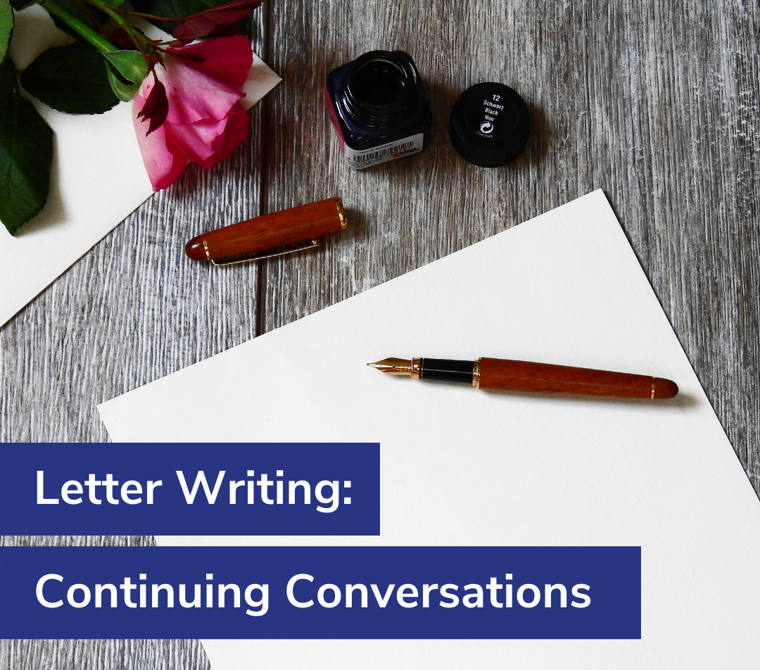Free Helpline: 0808 802 6161 Mon - Fri 9am - 8pm, weekends 10am - 2pm
Mon - Fri 9am - 8pm, weekends 10am - 2pm
We use necessary cookies to make our site work. We also set analytics cookies that help us make improvements by measuring how you use the site.
For more detailed information about the cookies we use, see our Terms and Conditions page.
Cruse Scotland volunteer, Mo Szulejewska, describes how letter writing can help to continue a relationship with a loved one who has died.
April 22, 2021
I recently came across the following quote which really resonated with me:
“Death ends a life but not a relationship”.
Such a simple idea and yet one with so much depth and truth to it. Death does not erase shared history or memories; nor does it end a relationship, but change it. My father is no less my father because he is no longer alive. The times we spent together, the things we did together, the conversations we had during his lifetime – these are the elements that shaped our relationship and they live on in my memory.
Sometimes, after someone has died, we find that there are things we still want to say to that person. Perhaps it’s something we never had the chance to tell them during their lifetime. Perhaps it’s something that we have only realised after their death. And in the same way that death does not end a relationship, nor does it wipe out our feelings and emotions towards that person. Indeed, our feelings and emotions are often intensified or thrown into turmoil and it may be that we would welcome the opportunity to share these with the person who has died. One possible way of doing this is by writing a letter. Some people find this a helpful and healing experience, so if this idea appeals to you, here are a few suggestions for how to go about it.
Kate Thompson (2011 p.139) writes:
“Letters are a way of continuing conversations over time and space. This is as true of unsent letters as with normal posted letters”.
If you decide to try letter writing, I hope you find it beneficial.
Therapeutic Journal Writing – Kate Thompson - 2011 - Jessica Kingsley Publishers.
If you are interested in reading about other creative activities to help you cope with a bereavement, check out our blogs on keeping a journal or writing poetry.

Mo Szulejewska - Cruse Scotland Training Team Member
Mo Szulejewska is a qualified pluralistic counsellor who lives and works in her native Scotland. She has a lifelong fascination with words, language and communication as well as both personal and professional experience of the positive contribution writing can offer in supporting emotional wellbeing. A seasoned journal keeper, she also facilitates writing for wellbeing and journal writing groups. She has been involved in various ways with the work of Cruse Scotland since 2017.